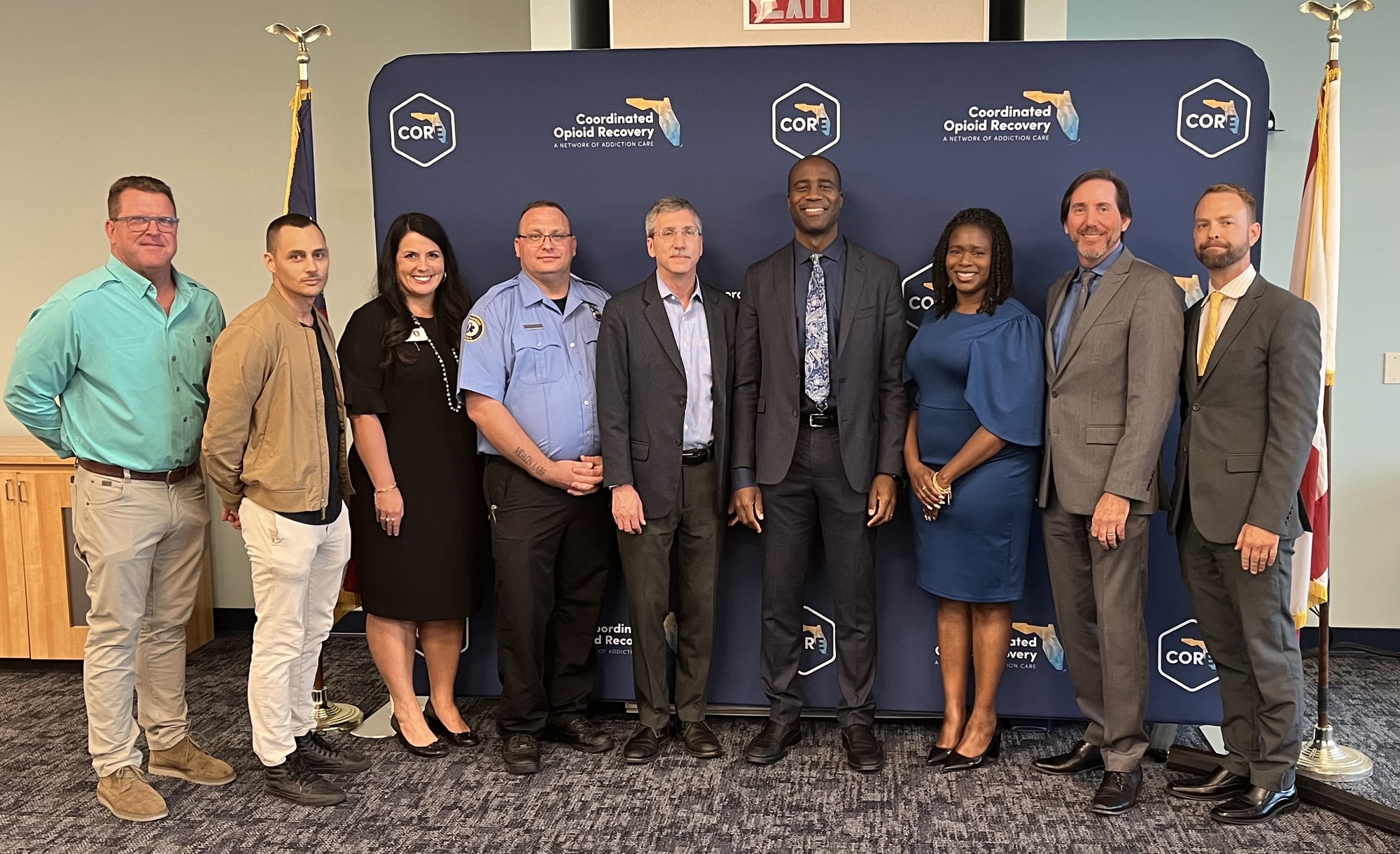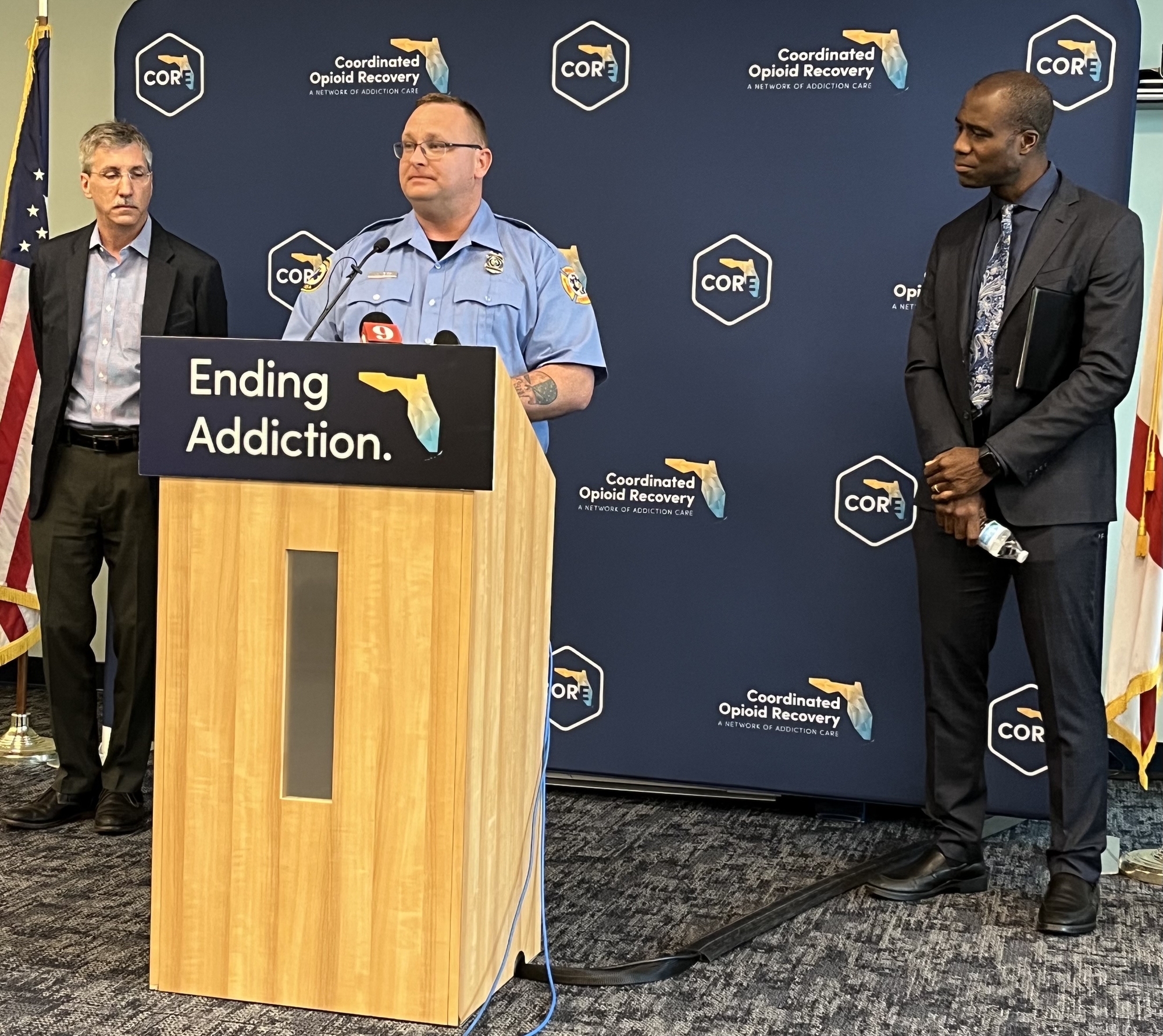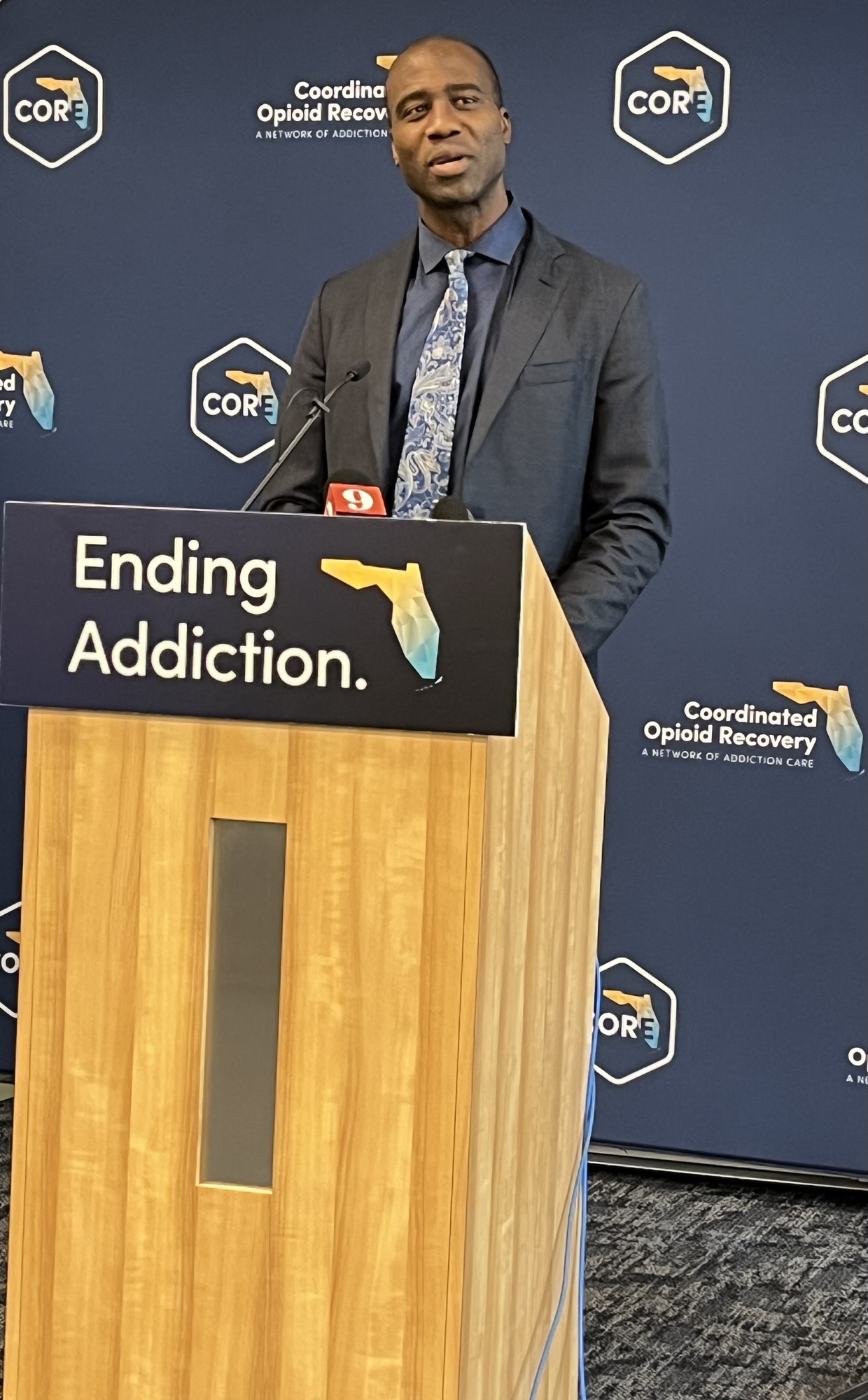It's a New Day in Public Health.
The Florida Department of Health works to protect, promote, and improve the health of all people in Florida through integrated state, county, and community efforts.
FDOH and DCF Leadership Visit Brevard County Core Network
November 18, 2022

Contact:
Communications Office
NewsMedia@flhealth.gov
850-245-4111
Brevard County, Fla. – On Thursday, State Surgeon General Dr. Joseph Ladapo, Deputy Secretary for Health Dr. Kenneth Scheppke, and Department of Children and Families Assistant Secretary for Substance Abuse and Mental Health Erica Floyd Thomas, alongside community partners, visited the expansion of the Coordinated Opioid Recovery (CORE) in Brevard County - a comprehensive network of addiction and opioid treatment.
This year, Florida has experienced over 4,000 reported fatal overdoses. In 2021, there were over 2,000 non-fatal drug overdose emergency department visits in Brevard County.

The CORE Network is the first of its kind in the nation, coordinated through the Florida Department of Health, Florida Department of Children and Families, and the Agency for Health Care Administration. The full-scale treatment approach of the CORE Network expands every aspect of overdose response and creates an all-inclusive sustained system of care and patient navigation to holistically address all primary and secondary impacts of substance use disorder.

“Addiction is heartbreaking for all involved, and we ultimately want to help people address the stress traumas that led them to addiction,” said State Surgeon General Dr. Joseph Ladapo. “This program is an applied, intensive application to managing addiction through powerful, effective practice that connects people to what they need to get out of the horrific cycle of addiction.”
“The existing standard of care for substance use disorder is outdated. The current overdose response in most of the United States treats the acute overdose, without providing access to sustainable care,” said Dr. Kenneth Scheppke, Deputy Secretary for Health. “That’s exactly why we’ve developed CORE. This program facilitates the necessary connections among local emergency response and specialty health care networks to not only respond to an acute overdose, but to connect individuals suffering from substance use disorder to sustainable and long-term care.”
In the wake of Hurricane Ian, there is also concern of increased substance use and overdose deaths due to the impact on individuals’ mental health and the disruption of normal pharmaceutical supply chains. It is critical that community partners provide resources to their communities as we recover from the effects of Hurricane Ian’s devastation. We must remain vigilant both now and in the long-term to prevent overdose deaths.
“By leveraging evidence-based services and providing the right treatment at the right time, CORE is a crucial component in fighting the disease that is addiction and keeping our families whole,” said Department of Children and Families Assistant Secretary for Substance Abuse and Mental Health Erica Floyd Thomas. “We at the Department of Children and Families are proud to help stand in the gap alongside our wonderful partners and continue to support strong and resilient families through this innovative initiative.”
Substance abuse is a chronic multifaceted life-threatening disease. If an individual in Brevard County overdoses, specialized emergency medical services protocol will begin stabilization while transporting the patient to a specialty hospital with attained specialty expertise in addiction medicine. Once all emergent health threats are stabilized, the patient’s long term care needs will then be transferred to an expert multi-specialty outpatient practice to support sustainable recovery.
CORE provides a personalized treatment umbrella ranging from primary care to mental health support. By facilitating these connections in Brevard County, CORE disrupts the revolving door of addiction by connecting overdoses to sustainable care in real time.
If you, or someone you know, is struggling with substance use disorder and would like more information on CORE in Brevard County, you may contact Circles of Care at 321-914-0640 or the Florida Department of Health in Brevard County.
If you suspect an overdose, call 911 immediately. The State has deployed resources that can be posted in public areas to ensure Floridians remain vigilant of the signs of overdose, how to respond, and where resources are available.
About the CORE Network
CORE was successfully piloted in Palm Beach County for nearly two years and will be expanding in up to twelve additional counties to help patients break free from the deadly cycle of overdose. Floridians battling with addiction can utilize CORE for stabilization and to receive medication assisted treatment from a network of specialized medical experts that will help guide them on a sustained pathway to healthy success. CORE will be expanded in two phases. Phase one counties include Brevard, Clay, Escambia, Gulf, Marion, Pasco, and Brevard counties. Phase two counties include Citrus, Duval, Flagler, Manatee, and Pinellas.
Florida is proud of its efforts in fighting the opioid epidemic and continues do so with access, evidence-based care, and lifelong comprehensive treatment. Floridians can find more information about CORE and various recovery resources here.
About the Florida Department of Health
The department, nationally accredited by the Public Health Accreditation Board, works to protect, promote and improve the health of all people in Florida through integrated state, county and community efforts.
Follow us on Twitter at @HealthyFla and on Facebook. For more information about the Florida Department of Health please visit www.FloridaHealth.gov.
Subscribe To Email List



Connect with DOH